When anxiety hits us, we can’t find relief soon enough. The good news is, with some healthy lifestyle tweaks and a couple of quick but effective fixes, we can begin finding anxiety relief more naturally, more often.
Here’s what you need to know.
Stay Active
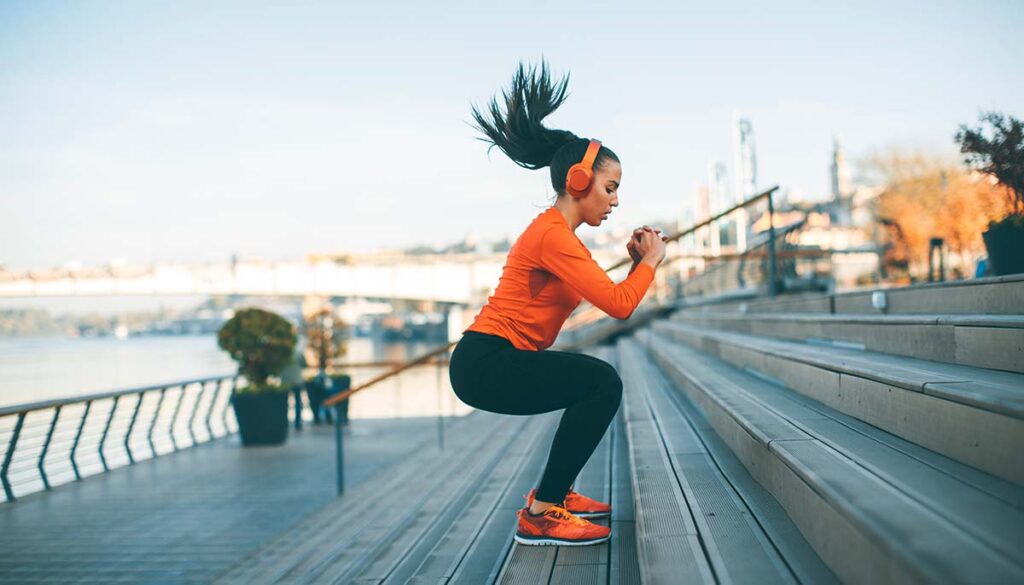
Exercise isn’t just good for your physical health, it’s imperative for your mental health as well. Go for a walk or go dancing. The idea is to stay active and get your heart rate up. It won’t just keep your mind busy, it’ll release a world of feel-good and anti-anxiety neurochemicals in your brain.
To see the most benefits, stick with it. Regular exercise can also benefit your concentration and willpower levels significantly, making it easier to turn to your daily jog or HIIT class (high-intensity interval training) when you start to feel anxious. With that said, low-impact workouts like Pilates can be just as beneficial for your mental and physical health. So get moving.
Cut Back on Caffeine
Do you suffer from chronic anxiety? You may want to consider cutting back on the caffeine, especially if you’re heavily reliant on it to get you through the day. Sadly, caffeine may be exasperating your anxiety significantly.
It can lead to nervousness lasting jitters and interrupted sleep. All three of which are not ideal for those already suffering from anxiety. And if you have an anxiety disorder, there’s tons of research suggesting that caffeine may worsen some of those conditions as well, sometimes causing panic attacks.

Cut back, or maybe even eliminate, caffeine use and see what happens. Chances are, your anxiety symptoms will start to improve. Of course, we all need an energy boost. Take this opportunity to start looking into other sources of energy, including increasing your exercise.
Much like alcohol, caffeine and anxiety have a well-documented relationship, primarily due to caffeine’s ability to alter brain chemistry in a not-so-great way. With that said, moderate caffeine use isn’t necessarily the worst thing in the world. Start cutting back and pay attention to your overall response. Even if you decide to completely cut it out, it’s better to slowly reduce how often you’re ingesting it to avoid withdrawals, especially if you drink coffee daily.
Avoid Alcohol
Alcohol is a natural sedative, but those calming effects won’t last very long. And ultimately, it’ll have the opposite impact on your system. Decades of research consistently suggest that there’s a strong link between anxiety and alcohol consumption. Oftentimes, anxiety disorders and alcohol use disorder (AUD) are believed to go hand-in-hand. The same is true of depression and alcohol use.

The more you drink, the more likely alcohol is to interfere with the healthy and needed balance of neurotransmitters, often associated with positive mental health. By creating an imbalance, you’re significantly upping your chances for anxiety issues. When you stop drinking, you may notice you’re actually more anxious than ever before. As your body and brain begin to heal, this increase in anxiety will only be temporary. Waiting it out will prove worth it in lasting ways.
Also of note, alcohol is known to disrupt your body’s natural sleep cycles, inhibiting your ability to get a full night’s rest. And when it comes to alleviating anxiety, getting a good night’s sleep is often our best course of action.
Stop Smoking
Those who smoke often see smoking as their go-to for relieving anxiety. However, like drinking alcohol, taking a drag on a cigarette to combat stress is merely a quick fix that actually does more harm than good. And the more reliant upon smoking you become, the more likely your anxiety is to rise over time.
Many studies also suggest that the earlier you start smoking, the higher your chances for anxiety issues later on in life. Nicotine and other chemicals in cigarette smoke are said to alter pathways in our brains directly linked to anxiety. So steer clear of smoking.
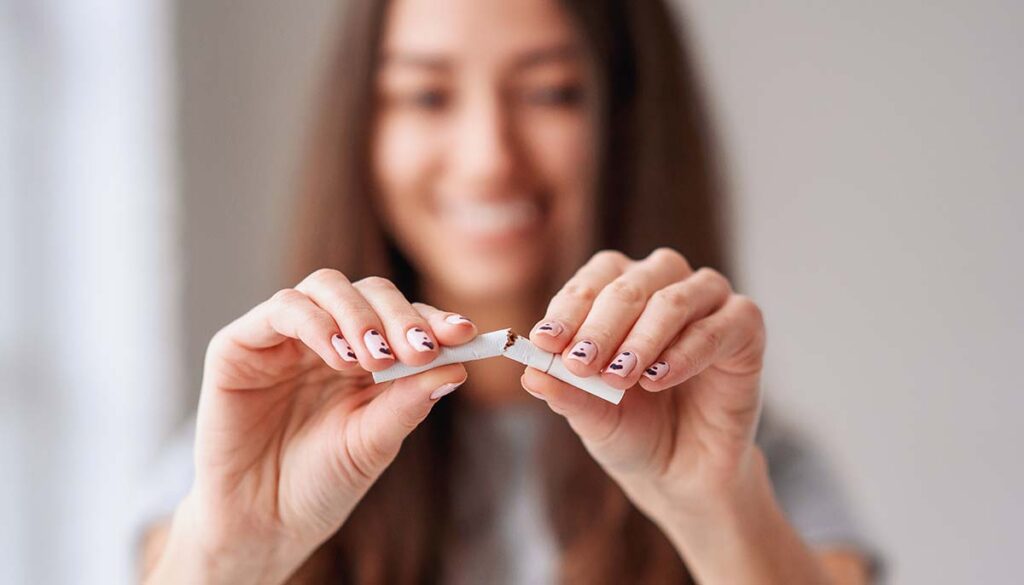
Quitting, of course, is known for not being easy. With your anxiety in mind, it’s important to find a substitute rather than going cold turkey in every way. Some people chew on toothpicks or cinnamon sticks. Others prefer to introduce new and healthy habits and distractions that keep their minds and body’s busy. However you decide to go about it, it’s not necessary to get through it alone. Having a support system can be incredibly helpful, and oftentimes, crucial. So turned to loved ones (or fellow friends trying to quit) to stay on track.
Meditation
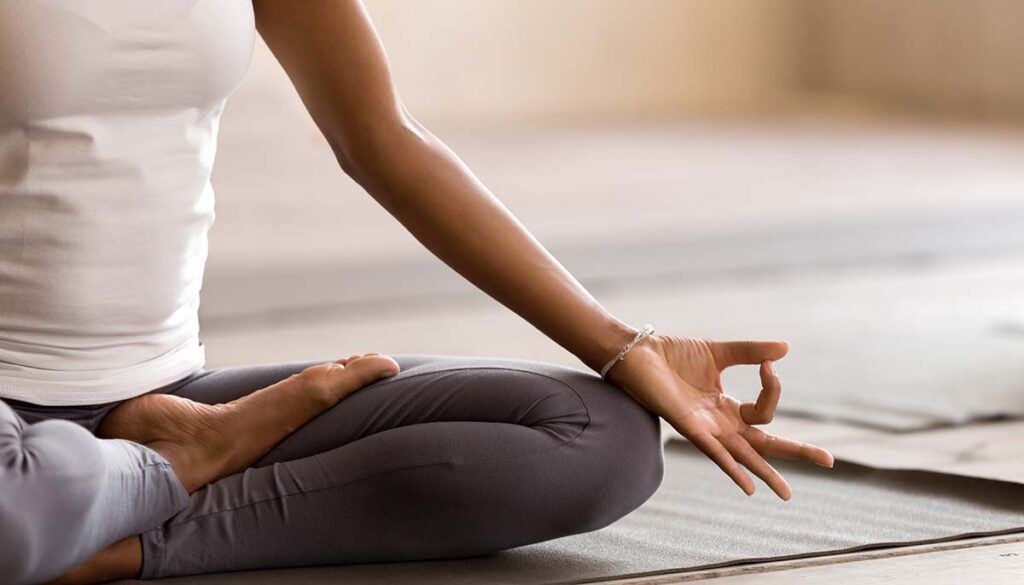
For centuries upon centuries, meditation remains one of the best natural remedies for combatting anxiety. It can help to slow racing thoughts, make managing stress easier, and bring a sense of calm to every part of your being. From simple mindfulness practices to meditation-oriented yoga, there are tons of meditation styles and no wrong way to go about it. But no matter where you start, commit to the stillness.
Start with 10 minutes a day and graduate to 20. As the cluttered thoughts start to flood your mind, you might feel unnerved at first and unable to sit still. But don’t give up. Look at all that’s flowing out as your system releases all that has been blocking you and making you anxious. The more you consistently integrate the practice into your daily routine, the more natural it will feel, and the less anxious you will be.
Relaxation Exercises
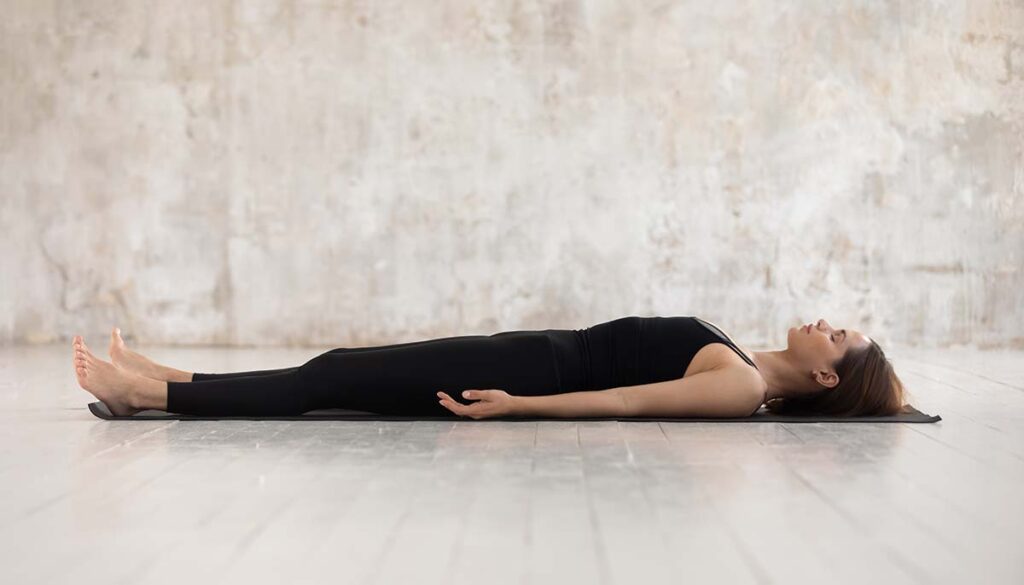
A lot of our anxiety manifests in our bodies. That’s where relaxation exercises become useful. Perhaps you unconsciously tense your muscles or clench your jaw in response to stressors. Once you start relaxation techniques, you’ll become much more in tune with where you’re carrying tension, and you can begin to release it naturally.
Start by lying in a comfortable position. Slowly constrict and relax every muscle group, from toe to head and then head to toe. Repeat the process. Also, do yourself a huge favor and check out these deep breathing techniques for anxiety relief. Those who swear by this method say it’s not just reliable, it’s downright life-changing.
Journaling
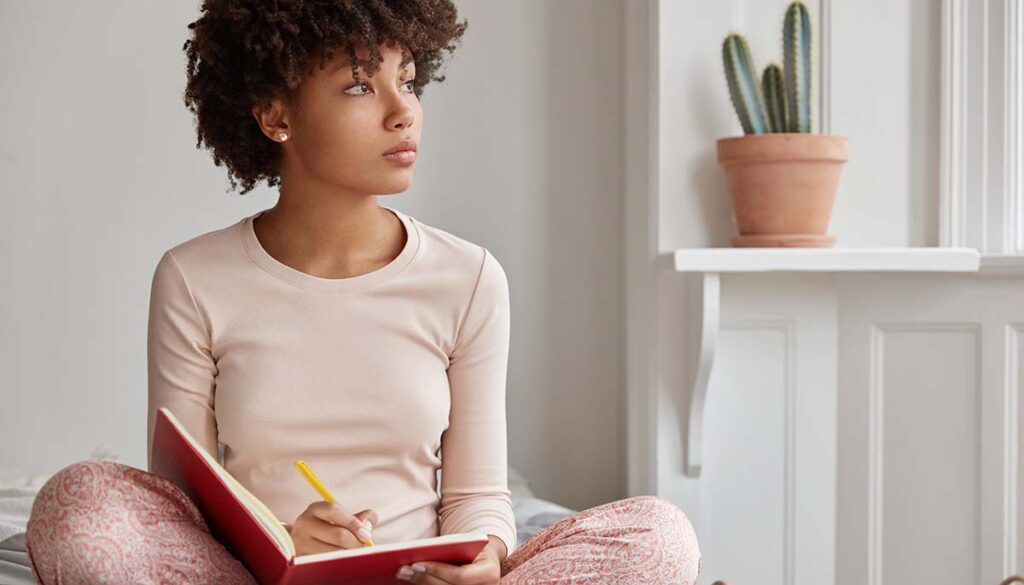
Again, releasing anxiety from our systems is key. So it’s important to find healthy outlets. Expressing ourselves through writing not only allows a full mental purge, but it also helps to restore a sense of control and order to otherwise chaotic and overwhelming thoughts.
Among many top psychologists, journaling often comes highly recommended to cope with anxiety. Children, teens, and adults can all benefit from this one equally. So find a quiet space, a moment alone, and begin quieting your busy mind by first allowing it to speak.
Better Time Management

Much of the time, having too many commitments and not enough time in the day is one of the key things that contribute to perpetual anxiety. Whether it’s family-related, workload-induced, financial stress, or involves your health, it’s time to lighten the load and get a grip on your schedule to move towards peace of mind.
Having a plan can decrease anxiety by giving us one less thing to worry about. It can also make all obligatory tasks much more manageable. Better time management strategies will help you focus fully on one task at a time without being overwhelmed by all that’s left on the agenda. In other words, multitasking is not your friend if you’re prone to anxiety. You want to give each task your undivided attention, and the best way to do that is to manage your time wisely.
Break down your tasks into smaller steps. Sometimes being able to mark things off our lists can be incredibly energizing. So tackle each task in an efficient and realistic manner, one little step at a time.
Aromatherapy
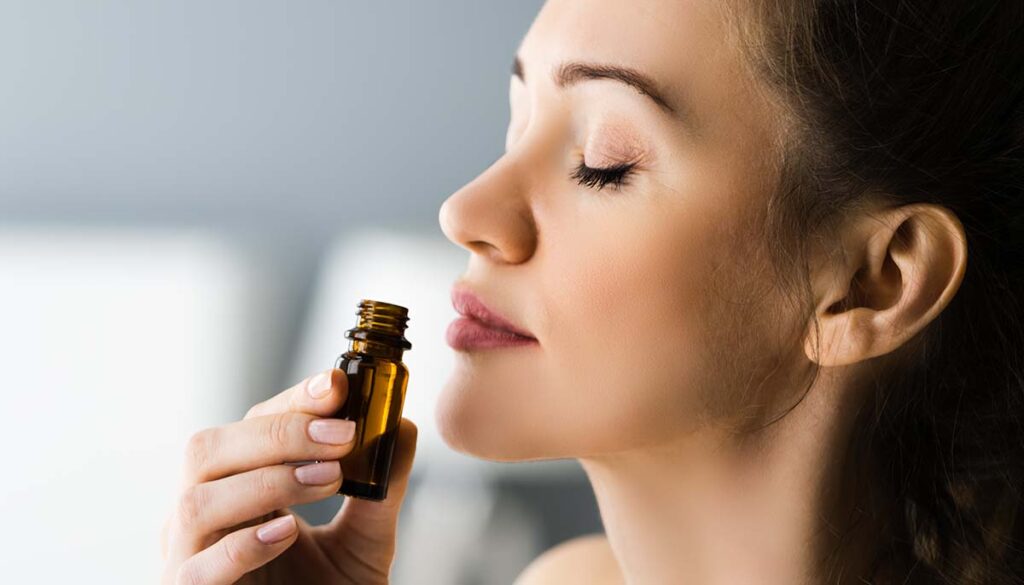
When we’re feeling anxious, it’s important to stop and take a deep breath. And what we breathe in can help significantly as well. Relaxation-inducing plant oils have been shown to do wonders on stress and anxiety levels. Lavender is often believed to be the most effective, especially for those suffering from insomnia. But there’s a lot out there to choose from. Experiment with various scents to explore what works best for you.
Herbal Supplements and Teas
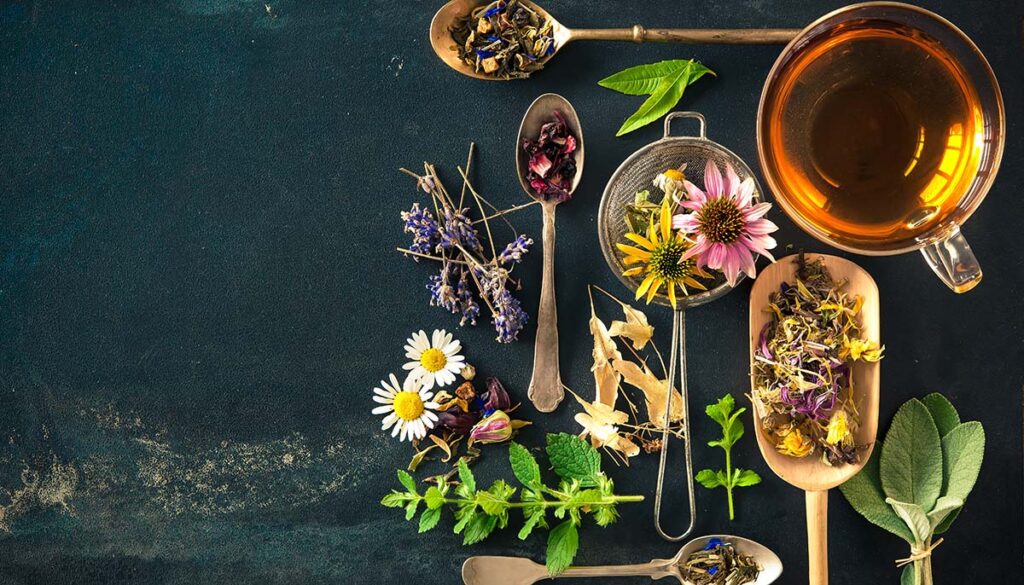
Whether you need help falling asleep or staying calm throughout the day, there are herbal supplements and herbal teas promising to help with whatever ails you. For instance, chamomile is famous for altering the brain’s levels of cortisol ( a stress hormone) for the better. Supplements are said to do the same. As with oils, it’s important that you shop around and see what works best for you. But with enough research, you’re sure to find your cup of tea.
Time With Animals
It’s no secret that pets provide companionship, love, support, and someone for us to lovingly look after. There’s a reason that emotional support animals are allowed in restaurants more often than ever all over the country. As connection-oriented creatures, animal bonds are just good for us. And there’s plenty of science now backing it up.

Research has shown that pets have a positive impact on people with a wide variety of mental health issues, including anxiety. Some studies have also suggested that people with pets tend to live longer than those who live alone, potentially due to a happier quality of life and the will to survive for those looking after something or someone beyond themselves. But it mostly comes down to the powerful impact of positive companionship.
For those with allergies to typical furry friends like dogs or cats, there’s good news. Pets don’t have to be furry to be good for our health. One 2015 study discovered caring for crickets improved psychological health in senior citizens. Spending time with animals is also believed to greatly reduce stress, depression, and anxiety for those who’ve endured trauma. And as far as natural remedies go, it’s certainly one of the most pleasant places to start.













